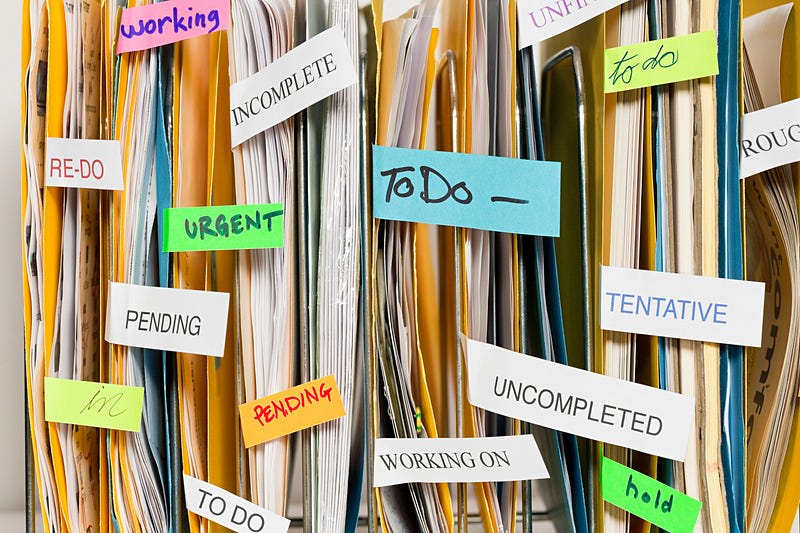It's Fine to Have No Idea How to Complete a Project
Just trust that the answer will come.

The Leadership Insiders network is an online community where the most thoughtful and influential people in business contribute answers to timely questions about careers and leadership. Today's answer to the question, "How do you exude confidence at work when you're feeling insecure?" is written by David Sturt, executive vice president at O.C. Tanner.
Don't let their years of leadership experience and degrees fool you; senior executives are as susceptible to insecurity in the workplace as any other employee. In fact, with changes in assignments, new teams to lead, or new initiatives to manage, executives often find themselves caught between the high expectations created by their past successes and self-doubts about whether they can achieve similar successes again.
I recently spoke with a trade show booth designer, who has done incredible work for many of the best-known brands in the world. He had just won another huge contract from a well-known client, and I asked how he felt about it. I was stunned when he said he was terrified and that he had "no idea" how he was going to carry out the project. With so much successful experience, how could he feel that way?
He explained that he felt this way every time he took on a big new project. However, he simply had to trust that by following his creative process, something great would emerge. Such nervousness and insecurity are often characteristic of people who achieve extraordinary results. So how do you confidently step into challenging new assignments when deep down, you're wondering if you can really pull them off?
Here are three ways to find your confidence and deliver outstanding results:
Build your experience
There are no shortcuts to expertise. You have to dive in and learn your craft. Experience can be a great teacher, but only if you choose to pay attention and actively learn from it. In each domain of work, you have to understand what success looks like and which specific actions you can take to achieve it.
In Malcolm Gladwell's convention-shattering book, Outliers: The Story of Success, he tells us that consistent hard work and practice (about 10,000 hours' worth) is the key factor that gets people to the top of their craft — from musicians to athletes to business leaders. But the catch is that the hard work doesn't stop when you're at the peak. While practice is what initially helps people scale the ranks, "the people at the very top don't work just harder or even much harder than everyone else. They work much, much harder."
If you become a serious student of what you do, you'll fairly quickly have the expertise and confidence to know what you're talking about.
Focus on small wins
A common but risky approach to building your confidence is focusing all of your attention on a big victory and ignoring the seemingly smaller ones. It's natural to feel insecure at work when it's been a while since you've accomplished a significant win, and you might start questioning your value and wondering what others think of you. Instead of swinging for the fences, though, focus on the smaller, consistent gains, which will generate momentum and confidence for the eventual home runs.
In the movie Moneyball, Michael Lewis shares the thrilling story of how Major League Baseball's Oakland Athletics built a winning team not by hiring the league's costliest stars, but by using strategy and carefully chosen statistics to select average players who could get on base. By small and simple actions of less-than-extraordinary players, the team was able to have a stunning season.
Don't only rely on yourself
When someone feels a lack of confidence, it is often because they are trying to go it alone. When you carefully consider your past successes, you rediscover how much the work you do is the result of a community endeavor. You have to give up the outdated and ingrained idea that you have to do all of your own work and rely on your own limited perceptions to come up with great ideas. If you're not feeling confident about how to best tackle a problem, you're probably not talking to enough people.
We all may lack confidence from time to time. But gaining confidence can be developed through building real expertise, focusing on the small victories that lead to the big ones, and working collaboratively with teams to do great things.
Enviado desde mi iPhone
Comentarios